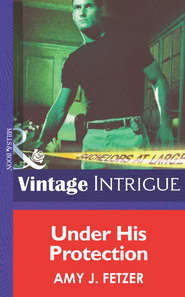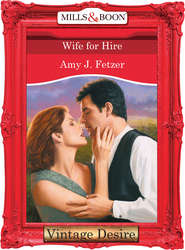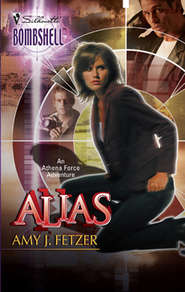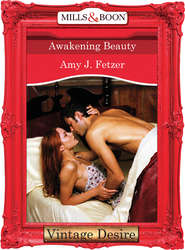По всем вопросам обращайтесь на: info@litportal.ru
(©) 2003-2025.
✖
Taming The Beast
Автор
Год написания книги
2018
Настройки чтения
Размер шрифта
Высота строк
Поля
Chapter Eleven
Chapter Twelve
Epilogue
One
Laura Cambridge looked up at the gray stone castle and wondered what she’d find inside. Prince Charming or the dragon?
The dragon most likely, she thought, if there was any truth to the gossip the townsfolk were more than willing to share during the ferry ride to this beautiful little island. Did Richard Blackthorne know how much he was feared, she wondered, her gaze moving over the ominous stones and the arched windows as the cab proceeded up the steep driveway. Lord, the structure even had turrets and crenellations. And a tower.
Laura saw only the loneliness of it all.
“Ma’am,” the driver said when he stopped before the huge house. “You sure you’re supposed to be here?”
Why did everyone in this little island village ask that, as if she were walking to her execution? Blackthorne was just a man, for pity’s sake. “Oh, yes, I’m sure, Mr. Pinkney,” she said, without looking at the middle-aged cabdriver.
“Mr. Blackthorne ain’t exactly the most congenial sort, you know.”
“With everyone acting as if he’d take a bite out of them, it’s a wonder, don’t you think?” She looked at him now, arching a brow.
He reddened a bit, then looked back at the house. “Idea had to come from somewheres,” he drawled, then rolled out of the driver’s seat to get her bags.
Laura left the car, walking with him up the steep front steps.
Summoned like a serf to the king, she had been hired to help Richard Blackthorne’s four-year-old daughter adjust to living here. To living with a recluse, a man locked in a castle and shielded from any human contact. Oh, this was going to take some work, she thought, for she knew from the gossip that no one had set foot inside this house, except delivery personnel, in four years. Laura felt instant pity for the little girl, who’d just lost her mother and had been kept from her father. Laura was here early to grow accustomed to the surroundings before the child arrived.
Mr. Pinkney set her bags down. She turned to pay the man and found him jotting something down on a slip of paper. As she handed him the fare, he handed her the paper.
“This here’s my number. If you’re needin’ a ride outta here or anything, you just give me a holler.”
She was touched, but it wasn’t necessary. “He’s not a monster, Mr. Pinkney.”
“Yes, ma’am, he is. He snaps and growls at anyone who steps on his land and he made mincemeat out of the delivery boy, and he was just bringing in groceries. I hate to think of what he’d do to you.” When Laura gave him a determined look, Mr. Pinkney looked up at the castle. Sighing, he went on. “This here house was built by a man years ago for his bride. She wanted to live like a princess, and he designed and built this house for her. Had every stone brought over from the mainland, some all the way from England and Ireland, to hear tell it. She died before it was finished, or before the fella had a chance to marry her.”
How sad, she thought, then tipped her head. “You act as if it’s cursed or haunted or something.”
Mr. Pinkney said nothing, staring at the wide-arched double slabs of wood as if they were the mouth of a cave. Haunted my fanny, she thought, and lifted the cool brass knocker, smiling to herself. It was the head of a dragon. Well, Mr. Blackthorne, if you wanted to keep the public away, you’re certainly doing a good job at it. She let the knocker fall.
Instantly a voice came over the intercom to the right of the doors. “Come in.”
The voice was deep, sandy-rough, the growling sound of it sending shimmers of apprehension over her skin.
“See what I mean?” Pinkney said.
“Hogwash,” she replied firmly, and opened the door, stepping inside. A small lamp on a beautifully carved side table cast the foyer in shadows. She set her purse and briefcase down, then turned to find Mr. Pinkney pushing her bags inside and making a hasty retreat back to the front steps. But that didn’t stop him from getting an eyeful of the house, she thought. She flipped on the light switch, and the foyer was flooded with light. He flinched and back-stepped farther.
“You call, you hear,” he said, his southern drawl more pronounced.
His attitude, much like that of the folks she encountered in town—the shock, the warnings, and mostly the horrid way people felt they could openly ridicule a man they’d never met—made her feel unaccountably protective of Mr. Blackthorne.
“That won’t be necessary,” she said, and closed the door. Sighing hard, Laura turned, her heart skipping to her throat as the light went off and a figure loomed at the top of the polished curving stairs.
“Mr. Blackthorne?”
“Obviously.” His gravelly voice rumbled down the staircase to her.
“Hello, I’m—”
“Laura Cambridge, I know,” he cut in. “Barely thirty, single, USC graduate, raised in Charleston, formerly Miss South Carolina, Miss Jasper County, Miss Shrimp Festival.” There was a smirk in his tone then, she swore. “Have I left anything out?”
Well, wasn’t he the superior being, she thought, staring up at where he stood on the landing, shrouded in shadows. “You forgot former State Department attaché, embassy schoolteacher, and a linguist, fluent in Italian, Farsi and Gaelic.”
“But can you cook?” he said in flawless Gaelic.
“I wouldn’t be here if I couldn’t.” She folded her arms over her waist and regarded the hulking shadow of a man, the foyer light offering only a look at the razor-sharp creases of his dark trousers breaking over his shoes. His hand rested on the banister, a heavy gold signet ring caught the light. Lord, he had big hands, she thought, then said, “So, do I have a Web site or something that I’m not aware of?” And just how much did he know about her, she wondered.
“Telecommunications is an amazing resource.”
“Yeah, well, spare me from listing my bra size or the time I lost my pom-poms under the bleachers with Grady Benson,” she said.
“Is that all you lost?” The words came out in a low growl that tingled up her spine.
It irritated her further. “Search the Net and find out,” she snapped, not liking at all that he knew so much about her and she didn’t know diddly about him. She hadn’t had the chance to find out anything much, except that he’d been reclusive since a disfiguring accident, divorced, and that he would, in a couple of days, take in a daughter he had never met. Curiouser and curiouser, she thought as she took hold of her bags. She faced him. “Where do I stay?”
“The second floor.”
She walked to the staircase.
“Leave the bags. Follow me,” he said.
Laura set the suitcases down, yet kept her briefcase and purse with her as she trailed him. He walked several steps ahead of her, as if he could anticipate her stride, always keeping himself in the dark. His walk was smooth, almost elegant, and what little light there was came not from the ceiling but glimmered along the floorboards. All she could see was the outline of his shoulders in the pristine white shirt, broad and straight. Impenetrable. He stopped at a door and quickly shoved it open.
“Here,” he said, and kept walking.
She stopped outside the room. “And your daughter’s room?”
He hesitated for the briefest instant. “Across the hall.” He was halfway up a second set of stairs. “I’ll have your bags brought up.”
“I thought you lived alone?”
“I do. There is a groundskeeper who lives in the cottage behind the house and a maid who comes on Mondays.”
“Don’t you think we should discuss your daughter’s arrival?” she shouted, since he hadn’t stopped walking.
“She will be here in two days. Meet her at the ferry.” He took each stair with such slow deliberation, Laura wondered if he was in pain.
“You won’t come with me?”











